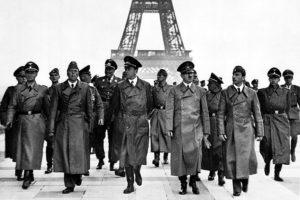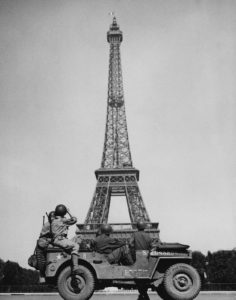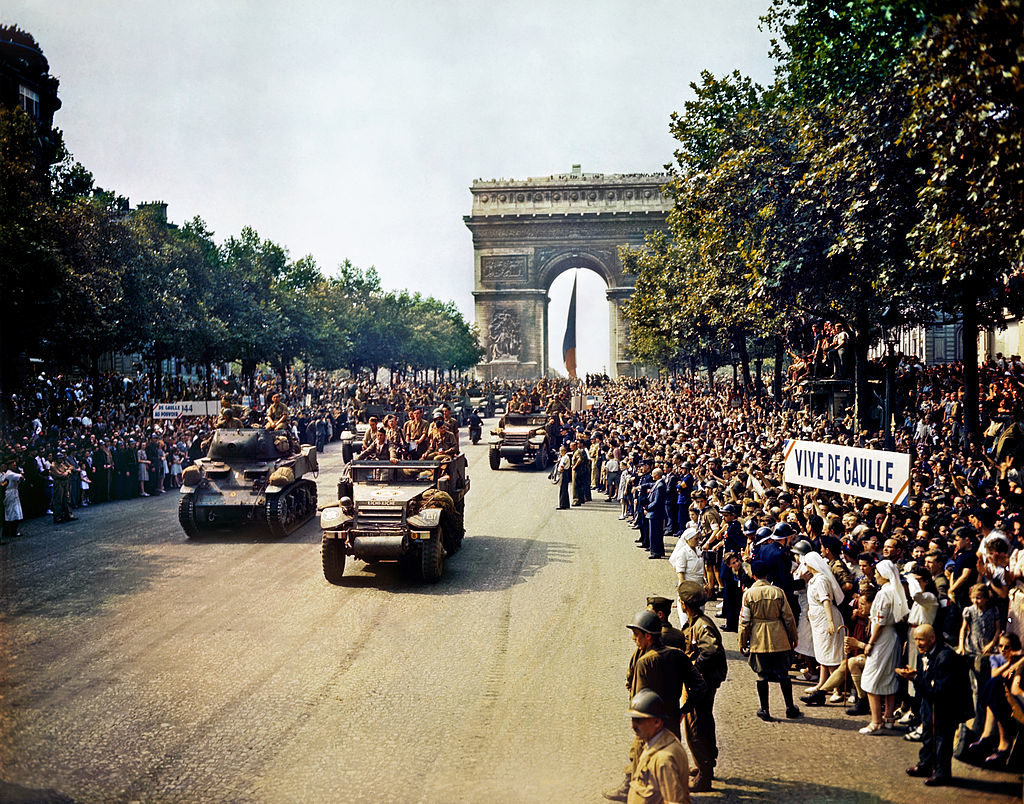Last Sunday marked another 75th anniversary from World War II – the liberation of Paris.
 From September of 1939 to the Spring of 1940 the world watched in astonished disbelief as German armies sped through Europe occupying nation after nation while meeting little resistance. Blitzkrieg, the “lighting war,” was intended to bring about a swift victory. Victory, however, wasn’t the only thing that Hitler wanted. He needed to prove the German military was superior. More than anything he wished to embarrass those countries that had stood against Germany after the First World War, especially France. Hitler’s triumph came on June 14, 1940, when German troops occupied Paris. The unthinkable had happened, the City of Light was no longer free. Hope was now fleeting, and the rest of free Europe wondered if they were next.
From September of 1939 to the Spring of 1940 the world watched in astonished disbelief as German armies sped through Europe occupying nation after nation while meeting little resistance. Blitzkrieg, the “lighting war,” was intended to bring about a swift victory. Victory, however, wasn’t the only thing that Hitler wanted. He needed to prove the German military was superior. More than anything he wished to embarrass those countries that had stood against Germany after the First World War, especially France. Hitler’s triumph came on June 14, 1940, when German troops occupied Paris. The unthinkable had happened, the City of Light was no longer free. Hope was now fleeting, and the rest of free Europe wondered if they were next.
During the occupation, life continued in Paris like it did in the rest of occupied France. Every aspect of daily life was under the control of the German forces. Food was scarce, and the soldiers took whatever resources or art that suited their taste. Citizens were arrested and deported to camps. Writing and publishing continued, but material had to conform to German standards, or it was censored. The famous Paris nightlife ended when curfews were imposed, and the playing of Jazz was outlawed. In the evenings, soldiers took over the famed cafés, restaurants, nightclubs and luxury hotels for their entertainment alone. Worst of all, Paris became ground zero for the propaganda war, including a banner over the parliament building that read, “Germany is winning on all fronts.”
 For the next four years, this continued with little hope in sight until June 6, 1944. Residents searched eagerly for news of the Allied invasion in Normandy and celebrated every victory that moved the liberating armies closer. By the middle of August, Allied forces were beginning to move east. Initially, the liberation of Paris was not the first priority. Instead, the plan was to move troops as quickly as possible toward Germany and Hitler’s defeat. As August dragged on, it became clear that Paris had to be liberated. The Resistance fighters in the city had begun fighting in the streets and needed reinforcements. Also, the Allies learned of a standing order to reduce the city rubble before it could be liberated, which was being ignored by the German officer in command of the city. It was decided forces had to move quickly before occupation leadership changed.
For the next four years, this continued with little hope in sight until June 6, 1944. Residents searched eagerly for news of the Allied invasion in Normandy and celebrated every victory that moved the liberating armies closer. By the middle of August, Allied forces were beginning to move east. Initially, the liberation of Paris was not the first priority. Instead, the plan was to move troops as quickly as possible toward Germany and Hitler’s defeat. As August dragged on, it became clear that Paris had to be liberated. The Resistance fighters in the city had begun fighting in the streets and needed reinforcements. Also, the Allies learned of a standing order to reduce the city rubble before it could be liberated, which was being ignored by the German officer in command of the city. It was decided forces had to move quickly before occupation leadership changed.
On August 25, 1944, troops from the French 2nd Armored Division along with the U.S. 4th Infantry Division entered Paris. They met limited resistance from the remaining German soldiers, and the city was liberated quickly. Citizens flooded the streets, greeting their liberators with the same affection and friendship they had experienced in Normandy. Army Sgt. Herman Zeitchick, who participated in the liberation of Paris, remembers, “They brought down whatever food, flowers [they had] and just wanted to do everything with us.” (DOD Commemorates 75th Anniversary of Paris Liberation, by. C. TODD LOPEZ, defense.gov/explore/story/Article/1948876).
It is amazing what you can accomplish in 81 days with a common purpose and goals. In 81 days, the Allies moved from landing at Normandy to liberating Paris and gave hope to other occupied areas. It took Christian along with our editor just over 81 days, 12 weeks exactly, to rework The Girl Who Wore Freedom and get it ready for events in Normandy. Now our goal is to complete the film so that it can be entered into various film festivals starting next year. Your support and passion for this project have made each step along the way possible. Just imagine what we can do in the next 81 days!
Please consider:



Recent Comments